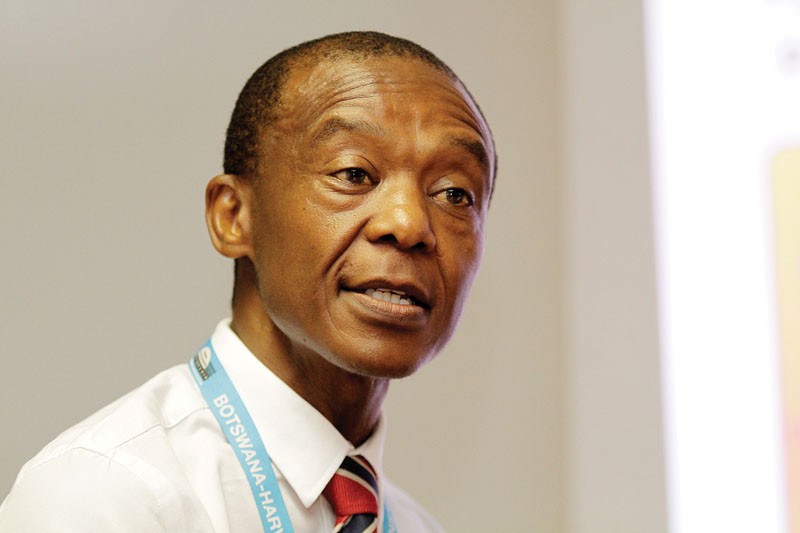Groundbreaking HIV study launches
Baboki Kayawe | Wednesday November 30, 2016 15:13


The study, which started in July, targets a maximum of 300 women aged between 18-40 among whom the HIV incidence is leading in sub-Saharan Africa, in addition to glaring disproportions among their male counterparts.
For instance, HIV incidence among 15 to 19-year-olds is reported to be three percent for males, and much more for females at seven percent.
Moreover, females are getting infected earlier than men. In the 30- to 40-age cohort, trends are females get HIV infected around five to seven years earlier than men. It is against this backdrop this new modality into HIV control research, known as Antibody Mediated Prevention (AMP) study that uses peculiar type of antibodies to see if they will protect against HIV infection, focuses on this population.
At a media briefing at the BHP premises housed at Princess Marina Hospital, lead researcher and chief executive officer, Dr Joseph Makhema said the VRC01 - the antibody used in this study - is present in blood samples of people termed long-term non-progressors, whose bodies are able to maintain low viral loads.
“The primary objective of the study is to look at whether infusing the antibodies in the blood stream of non-HIV infected participants will be safe, tolerated and prevent HIV acquisition on those HIV negative,” Makhema explained.
The study duration is two years, but participants will be followed for a five-year period. Risk populations such as sex workers, females with multiple concurrent partners, women not intending to fall pregnant within the two-year duration, and preferably those on long term contraceptive regimes like implants are eligible to volunteer in this research.
“Eighty-five women have been screened so far but we have enrolled 30 volunteers with 100% retention rate. We are looking at about 100 and a maximum of 300 participants,” study coordinator, Dr Emily Makunike-Shava said. Participants can decide to withdraw from the study at any stage if they feel the need. A total of 1,500 women from Botswana, South Africa, Kenya, Malawi, Mozambique, Tanzania and Zimbabwe will enroll in the study that also runs in the United States, Brazil and Peru targeting men who have sex with and the transgender community; and will enroll 2,400 participants.
